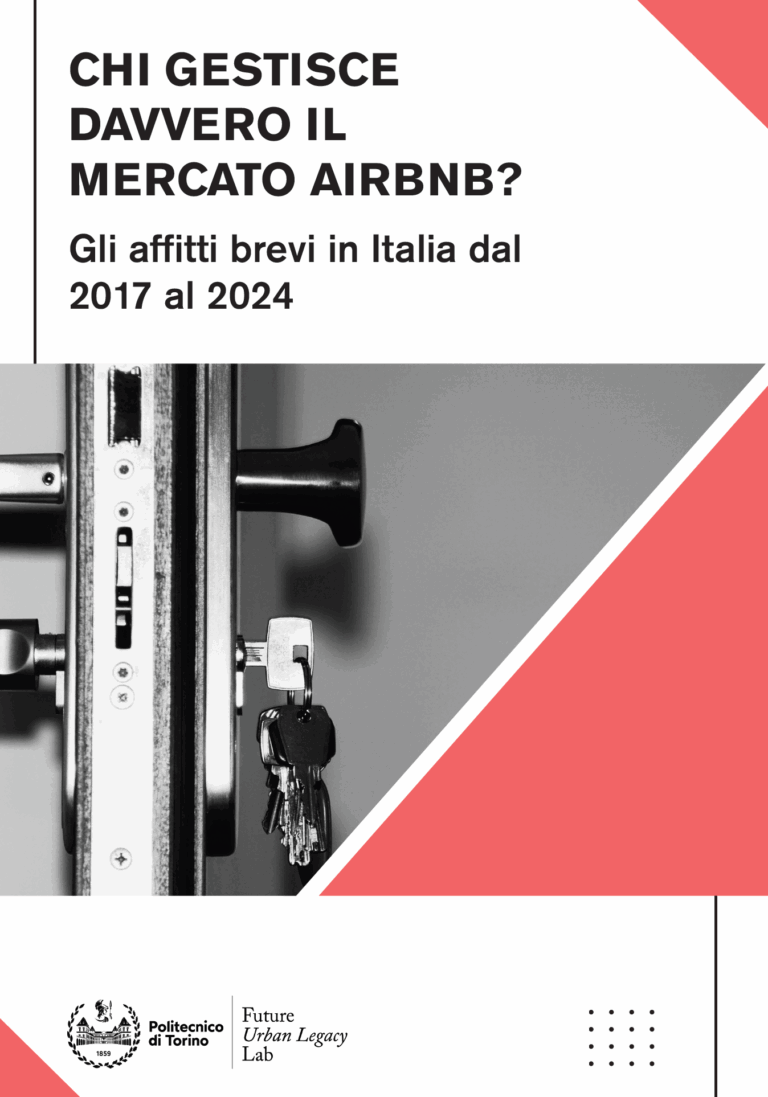Come noto, Airbnb è una piattaforma online per la locazione temporanea che svolge un ruolo di intermediazione tra host (chi ospita) e guest (chi è ospitato). L’host può essere il proprietario dell’immobile oppure un soggetto terzo che gestisce l’unità abitativa (per esempio, un’agenzia immobiliare o un imprenditore).
In Italia, la locazione breve attraverso Airbnb ha influenzato profondamente non solo il settore dell’offerta turistica ma anche, più in generale, il panorama residenziale, sociale e commerciale di molti territori, divenendo per questo argomento di acceso dibattito pubblico, politico e accademico. Su questo sfondo, appare utile fornire dati aggiornati che permettano di comprendere il fenomeno a diverse scale territoriali come base per una riflessione accademica robusta, un discorso pubblico consapevole e politiche pubbliche efficaci.
Nel presente rapporto, proponiamo un’analisi a scala nazionale del “fenomeno Airbnb”, prendendo in considerazione il periodo 2017-2024. I dati utilizzati sono estratti dai database AirDNA, fornitore globale di dati circa gli affitti brevi. Dopo aver presentato una panoramica di domanda, offerta e prestazioni, il rapporto fornisce un affondo sui diversi tipi di host (gestori di unità abitative) attivi in Italia.
Ne esce un quadro inequivocabile: crescita impetuosa tanto del numero di alloggi disponibili sulla piattaforma (+52%), quanto della loro redditività (+124%, pari a 11.700 euro ad alloggio nel 2024). Simultaneamente, cresce il peso dei soggetti che gestiscono in modo professionale un numero consistente di alloggi (nell’ordine di diverse decine): +77%, di modo che oggi essi hanno in mano quasi il 30% dei posti letto disponibili. Dati a disposizione di chiunque voglia riflettere sullo stato del settore e sui tentativi di regolarlo.
